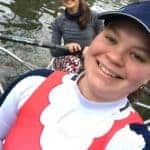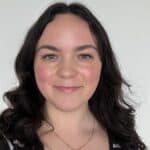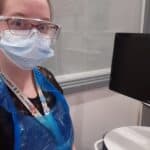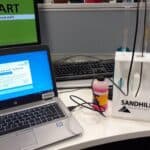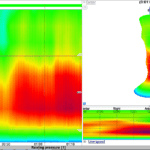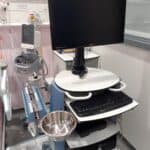Profile
Carly Bingham
-
About Me:
I live near London with my husband. I work in a children’s hospital during the day and in the evening I like to play video games and crochet. I love playing board games and reading.
-
Read more
I live near London with my husband. Living near London is fun because I can go to lots of really cool science based museums at the weekend as well as see plays and shows easily.
In the evenings, I sometimes like to play video games, but I also like to do activities that keep my brain and hands busy. I read a lot of science fiction and fantasy books and I recently learned to crochet. I can only make stuffed animals though – I tried to make a blanket and it came out very wonky!
I also visit my local board game cafe regularly to meet my friends and play board games or Dungeons and Dragons.
-
My pronouns are:
she/her
-
My Work:
My job is to try and figure out why people (especially children) are having trouble eating or going to the toilet. I’m a digestive detective!
-
Read more
I look after children who have problems eating food or keeping it in their tummy as well as children who have trouble getting poo to come out or have poo come out when they don’t want it to.
I try to find out where things have gone wrong by using special tubes that measure how well the muscles of the digestive system move. I put my tubes inside the foodpipe (tube of muscle that connects your mouth to your tummy) or bottom and ask the child to show me how they normally eat or poop. Once I have measured the muscles, I can build a pretend version of muscles on my computer and compare it to somebody who’s muscles are working.
Once I have found the problem areas, I tell the doctors about it so they can give the right treatment.
-
My Typical Day:
I get to work about 9am and I set up the equipment for my first patient of the day. I go to the ward about 10am to do the test. I have lunch back in the office and catch up with my favourite work friends. After lunch at about 1:30pm, I have another patient, but luckily the equipment is already set up from the morning. At 4pm I have a meeting to talk about the measurements I have done with the doctors. Then at 5pm, I go to the station to head home!
-
Read more
My days can be very different – it’s one of the things I love about my job! I split them between days that I work on the ward seeing patients and days where I work in the office looking at the measurements or working on teaching people how to do my job
On a ward day, I go to the office at 9am and start setting up my equipment. While it sets up, I usually have a cup of tea and read my emails. I go to the ward about 10am and meet the child I am looking after and their Mum and Dad. I explain the test that I am going to do and answer any questions beforehand. Once the test is done, I send the family home and clean up my equipment to make sure it is safe for the next person – we don’t want to share any germs! I then have a quick lunch with my favourite nurse before heading back to the ward. At 1:30pm, I meet the next family and explain everything again. This patient is staying overnight so when the test is done, I introduce them to the nurse that will look after them when I go home and show them where the most important bits of the ward are: the playroom and kitchen! Once they are settled, I go back to the office to meet my doctors and tell them about the patients I have seen and what I found out. After this, it’s home time!
On an office day, I still arrive at 9am and once I have my tea, I start looking at the measurements I have made this week and building the pretend versions so I can see where any muscles might not be working well. At 11am, my team has a meeting where we take it in turns to teach each other about things as we all have different areas that we know about. My favourite is when the dietitians (people who help us to eat well) are talking! After lunch, I spend some time making telephone calls to the families who are coming to see me next week – we talk about the test that their child is going to have, what will happen on the day and how to make things run smoothly. At 4pm, I write up what happened in these phone calls so my whole teams can see it and then it’s time to go home!
-
What I'd do with the prize money:
I’d like to have a model of the digestive system to take to events and show to people. It’s hard to imagine all the bits that make it up when they’re all inside you. It would be useful to be able to show people how the different muscles squeeze to push food along!
-
Education:
The Folkestone School for Girls – my favourite teachers were my maths teachers who encouraged me to love maths by making it fun and interactive. They were very supportive in helping me find activities to stretch my learning!
-
Qualifications:
GSCEs: Maths, English Literature, English Language, Double Science, History, Resistant Materials, French, Religious Education, Citizenship
A-Levels: Maths, Further Maths, Physics, Chemistry, French
BA Engineering for the Life Sciences: this was all about applying engineering to human body – our veins are like pipes for example!
MEng Computer and Information Engineering: I wanted to learn more about coding so I focused my Master’s degree on this, but I also did some extra courses in engineering people again!
MSc Clinical Science (Clinical Engineering): This was part of my training programme while I was working in the hospital. It was a very focused course on learning skills relevant to the job I was learning to do
-
Work History:
2009-2010 – Filing Clerk: While I was in sixth form, I worked for an insurance company, filing paperwork and writing customer letters during the school holidays. Even though this isn’t related to my career now, I learnt a lot about hard work, patience and computers!
2010-2011 – Year In Industry: Engineering placement at Dstl before I went to university and in my university summer holidays – I mainly worked on communication equipment and military vehicles, but I also discovered lots about good scientific experiments and also a love of coding here!
2015-2018 – Scientist Training Programme: 3 year training scheme where I worked in a hospital learning about what lots of different scientists did while doing an MSc part time, including how investigating how people walk, how people’s lungs work and how people’s digestive systems work – this was really important for my current job as I learnt lots of useful skills, like working with patients, doing science in a hospital and LOTS about the human body
2018-Now – Clinical Scientist: I work in a children’s hospital looking after digestive systems and using science to try help make things better!
-
Current Job:
I am a registered Clinical Scientist – this means that I have to prove every year to the government that I am doing my job safely and well
I look after children who have problems eating food or keeping it in their tummy as well as children who have trouble getting poo to come out or have poo come out when they don’t want it to.
I try to find out where things have gone wrong by using special tubes that measure how well the muscles of the digestive system move. I put my tubes inside the foodpipe (tube of muscle that connects your mouth to your tummy) or bottom and ask the child to show me how they normally eat or poop. Once I have measured the muscles, I can build a pretend version of muscles on my computer and compare it to somebody who’s muscles are working.
Once I have found the problem areas, I tell the doctors about it so they can give the right treatment.
-
Employer:
Evelina London Children’s Hospital
-
My Interview
-
How would you describe yourself in 3 words?
The Digestive Detective
What did you want to be after you left school?
Formula One Engineer
Were you ever in trouble at school?
No - I was a teacher's pet!
If you weren't doing this job, what would you choose instead?
I'd like to teach maths
Who is your favourite singer or band?
Bear's Den
What's your favourite food?
Chocolate
If you had 3 wishes for yourself what would they be? - be honest!
To be able to fly, to spend 3 months travelling the world, to make a cool scientific discovery
Tell us a joke.
What's the best time to go to the toilet? Poo-thirty!
-



